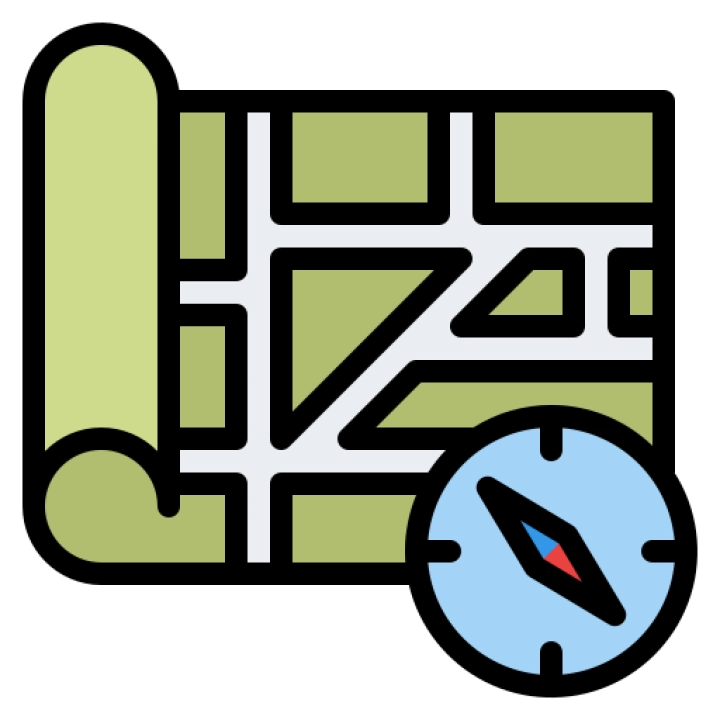College: Graduate School of Science and Engineering
This interdisciplinary program focuses on strategic planning and land resource management for sustainable and efficient use.
Students explore key areas such as urban and regional planning, environmental impact assessment, land policy, geospatial information systems (GIS), and community engagement. The program emphasizes practical skills, analytical knowledge, and understanding of social, economic, and environmental considerations. Graduates are prepared for careers in urban planning, environmental management, land development, and related fields.
Learning Objectives:
- Understand the fundamentals of land use planning and management.
- Develop skills in urban and regional planning.
- Learn techniques for environmental impact assessment and sustainability.
- Explore land policy and regulatory frameworks.
- Understand the use of geospatial information systems in land use planning.
- Analyze challenges and opportunities in land use planning and management.
- Develop teamwork, communication, and problem-solving skills for planning projects.
Main Outline:
- Introduction to Land Use Planning and Management
- An overview of land use planning, basic concepts, and historical context.
- Fundamentals of sustainable land use practices.
- Urban and Regional Planning
- Principles of urban and regional planning, including zoning, land use, and infrastructure development.
- Techniques for developing comprehensive urban and regional plans.
- Environmental Impact Assessment
- Basics of environmental impact assessment, including environmental regulations, impact analysis, and mitigation strategies.
- Techniques for conducting environmental impact assessments and enhancing sustainability.
- Land Policy and Regulation
- Principles of land policy, including property rights, land tenure, and regulatory frameworks.
- Techniques for developing and implementing land policies and regulations.
- Geospatial Information Systems
- Basics of geospatial information systems, including spatial data analysis, mapping, and visualization.
- Techniques for using GIS in land use planning and management.
- Community Engagement
- Basics of community engagement, including public participation, stakeholder collaboration, and community-led initiatives.
- Techniques for engaging communities in land use planning processes.
- Sustainable Land Use Practices
- Principles of sustainable land use practices, including resource conservation, management, and ecological restoration.
- Techniques for implementing sustainable land use practices and fostering environmental stewardship.
- Practical Training in Land Use Planning and Management
- Real-world land use planning experiences, including observations, internships, and practical projects in urban and regional settings.
- Techniques for applying learned skills in practical environments for planning and managing land use.
- Capstone Project in Land Use Planning and Management
- A comprehensive project applying learned skills in urban planning, environmental impact assessment, or sustainable land use practices.
- Techniques for delivering a polished and impactful land use planning and management project.
Assessment Methods:
- Reports on urban and regional planning, environmental impact assessment studies, land policy analyses, GIS projects, community engagement plans, sustainable land use practice proposals, practical training reports, capstone projects, group projects, and internships.
Recommended Textbooks:
- "Urban Land Use Planning" by Philip R. Berke and others.
- "Environmental Impact Assessment: A Practical Guide" by various authors.
- "Land Policy" by various authors.
- "Geospatial Information Systems: An Introduction" by various authors.
- "Community Engagement: A Reader in Participatory Democracy" by various authors.
- "Sustainable Land Use Planning" by various authors.
Prerequisites:
Basic knowledge of urban studies, environmental sciences, and geography. Suitable for students interested in urban planning, environmental management, and sustainable land development.
Duration of the Program:
Typically 4 years to obtain a bachelor's degree, including coursework, projects, practical training, and internships.
Certification:
Graduates can earn a degree in Land Use Planning and Management and pursue professional certifications in urban planning, environmental management, or related fields.
Target Audience:
Aspiring city planners, environmental managers, land developers, and professionals seeking to specialize in land use planning and management. This program equips students with practical, analytical, and collaborative skills needed to excel in land use planning and management, supporting careers in urban planning, environmental management, land development, and related fields.

